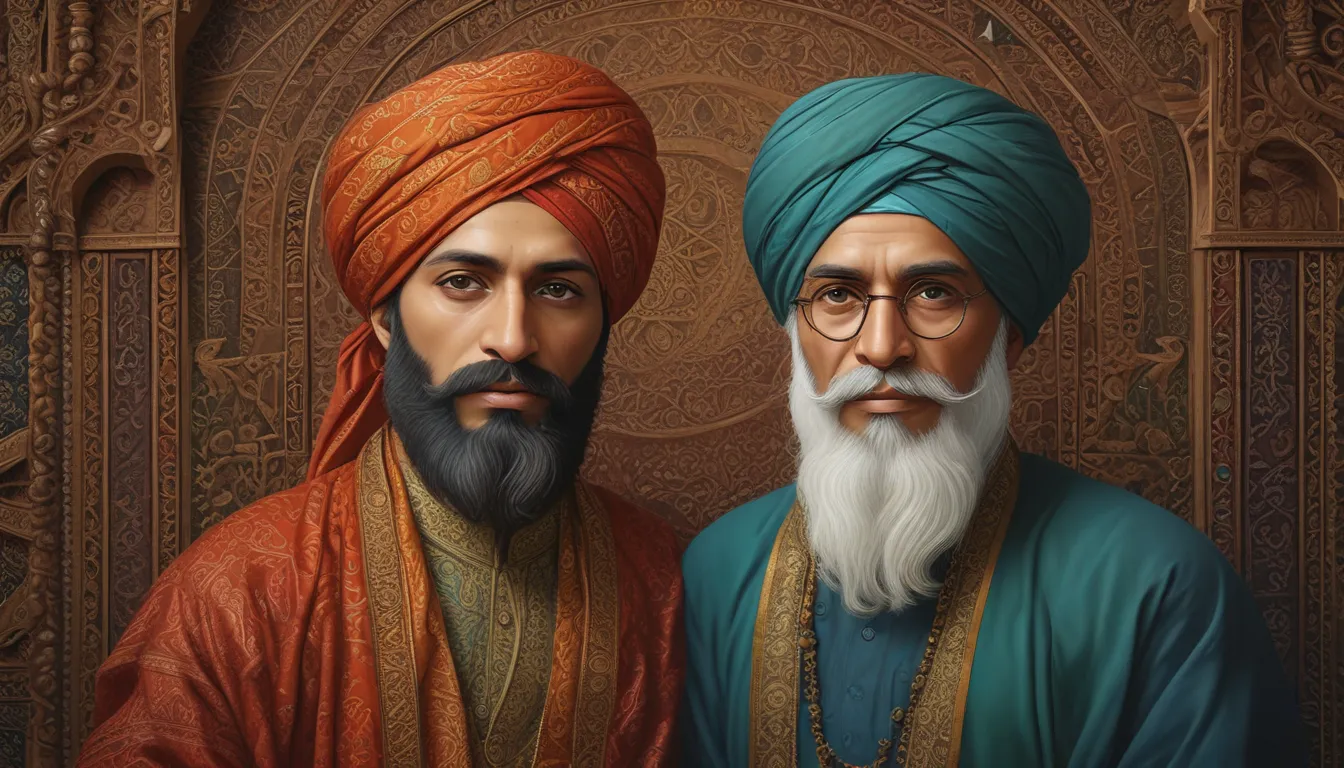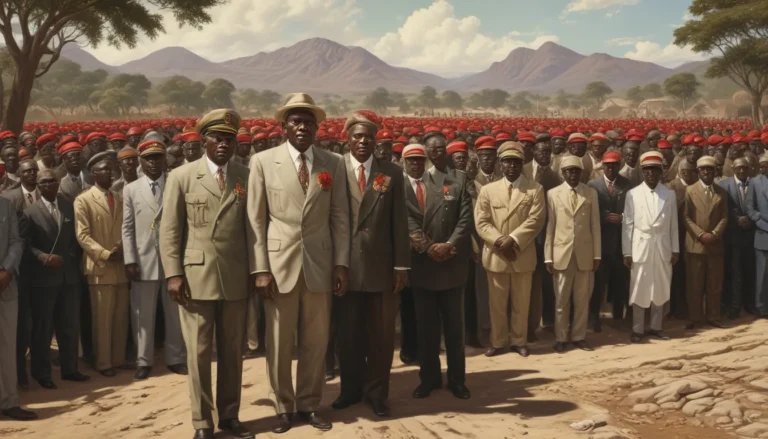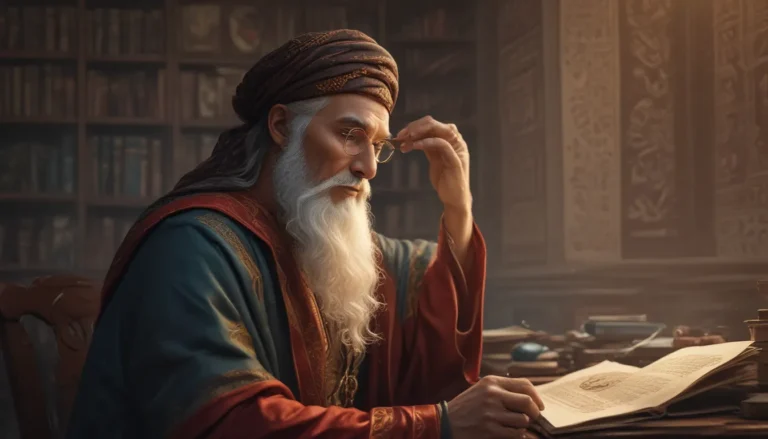The images in our articles may not match the content exactly. They are used to grab your attention, not to show the exact details in the text. The images complement the text but do not replace it.
Burhanuddin Rabbani, a name synonymous with reverence and admiration, is a towering figure in Afghan politics and a prominent leader of the mujahideen movement. His contributions and achievements have left a lasting impact on Afghanistan’s history. In this article, we will delve into 10 fascinating facts about Burhanuddin Rabbani, shedding light on different aspects of his life and legacy. Join us on a journey through history as we explore the accomplishments, struggles, and significant milestones that shaped Rabbani’s extraordinary life.
The President of Afghanistan
Burhanuddin Rabbani served as the President of Afghanistan from 1992 to He played a significant role in the country’s political landscape during a period of great transition and instability.
A Multifaceted Leader
Apart from his political endeavors, Rabbani had a distinguished background in academia as a renowned professor with a PhD in Islamic law. His academic prowess complemented his leadership skills, making him a well-rounded and respected figure in Afghan society.
Founder of Jamiat-e-Islami
Rabbani was the founder and leader of the Jamiat-e-Islami party, a powerful and influential political entity in Afghanistan. Under his guidance, the party played a crucial role in shaping the nation’s political landscape.
Resistance Against Soviet Occupation
During the Soviet occupation of Afghanistan in the 1980s, Burhanuddin Rabbani emerged as a prominent leader in the resistance movement. His efforts to mobilize and unite different factions against the invading forces were instrumental in the eventual withdrawal of Soviet troops.
Role in Establishing the Mujahideen Government
Following the Soviet withdrawal, Rabbani played a pivotal role in forming the Mujahideen government in Afghanistan. He worked tirelessly to bring together various factions and establish a transitional government during a critical period in the nation’s history.
Head of the High Peace Council
In his later years, Rabbani was appointed as the head of Afghanistan’s High Peace Council, where he spearheaded efforts towards promoting peace and reconciliation in the war-torn country. His dedication to peaceful resolutions made him a respected voice in Afghan politics.
Tragic Assassination
In a tragic turn of events, Burhanuddin Rabbani was assassinated in 2011 by a suicide bomber posing as a peace envoy. His untimely death was a significant blow to the ongoing peace process in Afghanistan, highlighting the challenges and dangers faced by those working towards stability and harmony.
Legacy of Education and Cultural Preservation
Rabbani strongly believed in the power of education and cultural preservation. He established numerous educational institutions and worked tirelessly to safeguard Afghanistan’s rich cultural heritage, leaving behind a legacy that continues to inspire future generations.
Salahuddin Rabbani: Continuing the Legacy
Following in his father’s footsteps, Salahuddin Rabbani entered politics and continued Burhanuddin Rabbani’s legacy. Serving as the Foreign Minister of Afghanistan, Salahuddin played an active role in shaping the country’s foreign relations and furthering the mission of peace and stability.
Inspiring Future Generations
Burhanuddin Rabbani’s dedication to his country and his unwavering commitment to peace and stability serve as an inspiration for future generations of Afghan leaders and citizens. His impact on Afghanistan’s history remains profound, resonating through the efforts of those who strive for progress and unity in the nation.
Conclusion
In conclusion, Burhanuddin Rabbani’s life and contributions have left an indelible mark on Afghanistan’s political, academic, and cultural landscapes. From his role as the President of Afghanistan to his efforts towards peace and education, Rabbani’s legacy continues to shape the nation’s future path. Despite his tragic assassination, his influence lives on through the work of those who continue to uphold his principles of peace, reconciliation, and education.
FAQs
Q: What were Burhanuddin Rabbani’s major accomplishments?
A: Burhanuddin Rabbani was a founding member of the Afghan Mujahideen, served as the President of Afghanistan, and played a crucial role in establishing Kabul University and Kabul Medical University.
Q: What was Burhanuddin Rabbani’s role in peace negotiations?
A: Rabbani played a significant role in the Bonn Agreement, which led to the establishment of a post-Taliban government in Afghanistan. He actively worked towards peace and reconciliation in the country.
Q: How did Burhanuddin Rabbani’s life come to an end?
A: Sadly, Burhanuddin Rabbani was assassinated in 2011. His untimely death left a void in Afghan politics and was a great loss for the nation.
Q: What is the significance of Burhanuddin Rabbani’s legacy?
A: Rabbani’s legacy lies in his dedication to education, commitment to peace, and his contributions to shaping Afghanistan’s history. His work continues to inspire and guide future leaders in the country.
Q: How is Burhanuddin Rabbani remembered today?
A: Burhanuddin Rabbani is remembered as an influential figure in Afghan history, particularly for his efforts towards peace and reconciliation. His contributions to academia and politics continue to have an impact even after his passing.
In the tumultuous landscape of Afghan history, leaders like Burhanuddin Rabbani stand out for their unwavering dedication to progress and peace. As we reflect on his life and legacy, we gain a deeper appreciation for the challenges faced by those who strive to shape a better future for their nation. Burhanuddin Rabbani’s resilience, vision, and commitment continue to inspire and guide the next generation of Afghan leaders as they work towards a more peaceful and prosperous Afghanistan.






